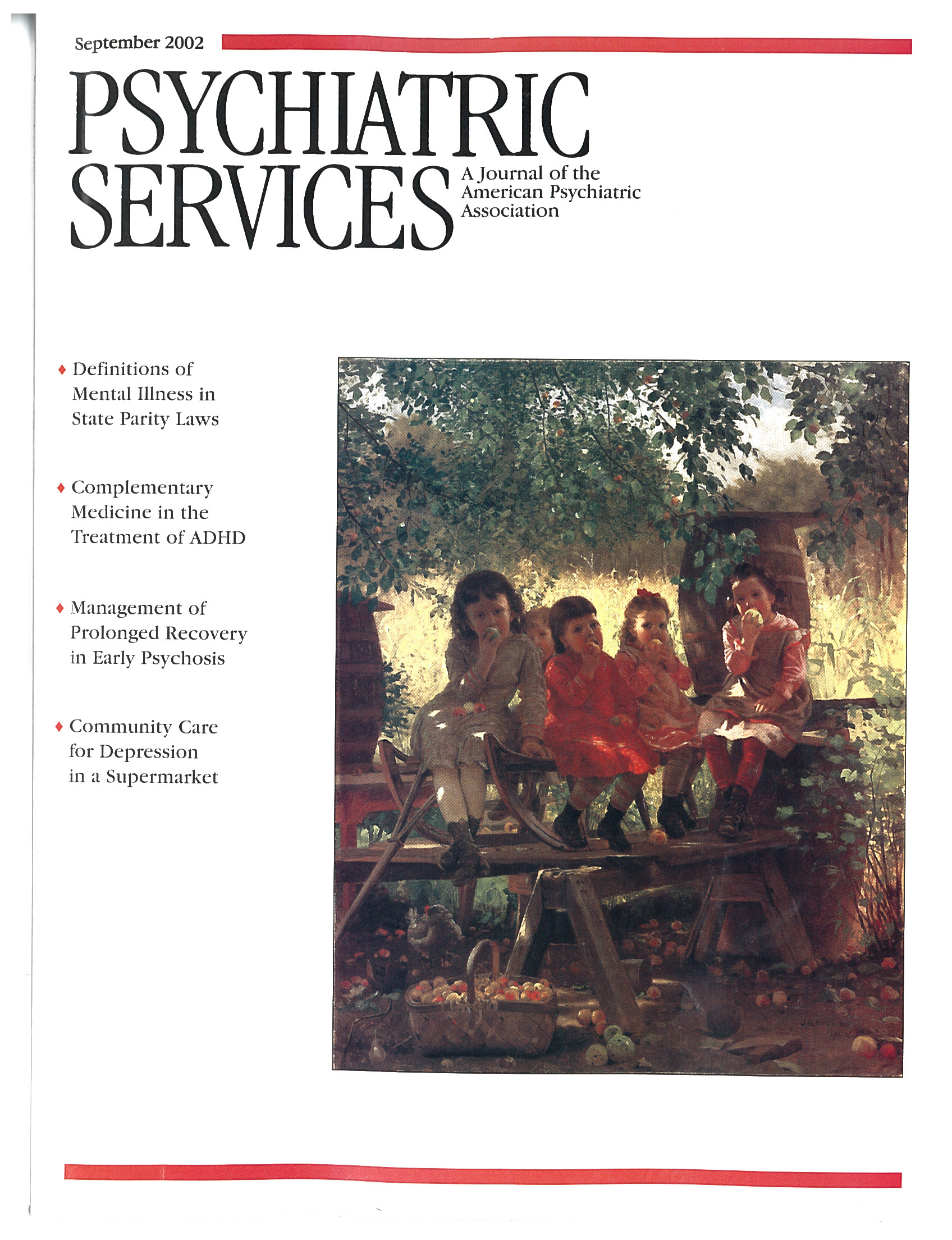Closing a State Hospital
To the Editor: Illinois, like many states, would like to shed the burden of caring for persons with mental illness, primarily because it interferes with the state's ability to minister to the needs of people who have more political influence. The article by Nierman and Lyons (1) in the September 2001 issue purports to explain how the authors were able to close an Illinois state hospital for adolescents. However, careful readers will see that the title of the article is misleading. In addition, mental health policy makers in Illinois know that the authors' claims about how the closure was accomplished are misleading.
The hospital closure described by Nierman and Lyons enabled Illinois to end its responsibilities under a class action consent decree protecting the rights of adolescent patients being treated in that hospital. The authors mention the consent decree but fail to point out that the burden of complying with the decree provided an important motive for their actions.
Nierman and Lyons list four reasons for the closure. They are careful not to claim that the closure was intended to improve services. Because improved services was not one of the goals of the closure, the fact that services to adolescents are now worse does not make the closure a failure.
The authors' claim that there was no significant opposition from consumers is incorrect. The Mental Health Association in Illinois (MHAI) objected strenuously to the closure.
Most cynically misleading is the following statement: "The significant concurrent reinvestment in community-based services was a powerful tool for gaining the support of important public advocates." Of course, this is true. But a more honest way of putting it would be "The state's decision to contract with private hospitals and private community mental health providers to serve some—but not all—of the individuals affected by the closure convinced the trade organizations for these entities not to oppose the closure."
The delivery of mental health services requires a coordinated system of inpatient and outpatient care. However, private psychiatric hospitals are rarely part of an integrated system. Thus, in Illinois and elsewhere, persons with mental illness are much more apt to leave private mental health facilities without an adequate discharge plan than are persons who leave public facilities. This was one reason for MHAI's opposition to the transfer of responsibility from state to private hospitals. MHAI predicted an increase in recidivism. Nierman and Lyons are to be credited for reporting that the prediction was correct.
In Illinois, persons in private psychiatric hospitals have fewer rights, and their care is subjected to less scrutiny than that of persons in public hospitals. One of the consequences of closing state hospitals is that less attention is paid to persons with mental illness. They become invisible.
In short, the title of the article by Nierman and Lyons should be "Closing Hospital Saves State Money but Harms Persons With Mental Illness." Unfortunately, many states will view both halves of this equation as worthy goals. Would that Illinois were not one of them.
Ms. Holcomb is chief executive officer of the Mental Health Association in Illinois, and Mr. Heyrman is chair of that organization's public policy committee and a clinical professor at the University of Chicago Law School specializing in mental health law.
1. Nierman P, Lyons J: Shifting resources to the community: closing the Illinois state psychiatric hospital for adolescents in Chicago. Psychiatric Services 52:1157- 1159, 2001Link, Google Scholar



